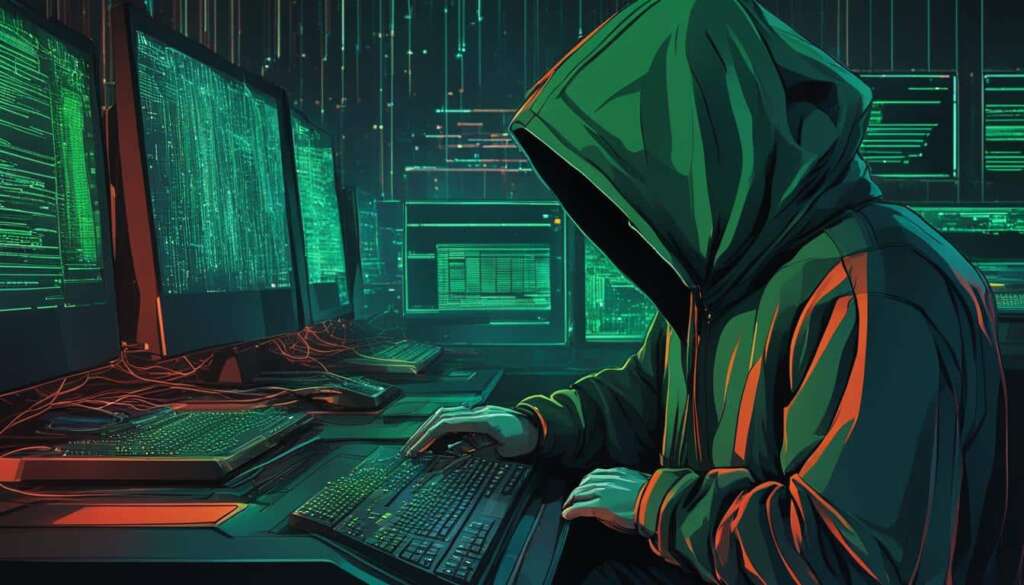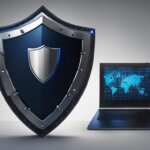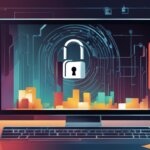Table of Contents
As technology continues to evolve and dominate nearly every aspect of our lives, the need for cybersecurity has become more important than ever before. With the rise of cybersecurity threats, it’s essential to know what is a computer hacker and the impact they can have on our digital safety.
A computer hacker is an individual who attempts to gain unauthorized access to computer systems or networks for malicious purposes, often with the intention of stealing sensitive information or causing damage. They possess advanced technical skills and knowledge that enable them to breach security systems and exploit vulnerabilities in software and hardware.
Cybersecurity is the practice of protecting internet-connected systems, including hardware, software, and data, from cyber threats such as hacking, phishing, and other malicious attacks. It involves implementing security protocols, software, and best practices to prevent unauthorized access and protect sensitive information.
Key Takeaways
- A computer hacker is an individual who tries to gain illegal access to computer systems or networks with malicious intentions.
- Cybersecurity is the practice of protecting internet-connected systems from cyber threats.
- Computer hackers have the potential to cause severe damage to digital safety, including data breaches and financial fraud.
- The importance of cybersecurity measures cannot be overstated in protecting against computer hacker attacks.
- Staying informed about emerging threats is essential to prioritizing digital safety.
The Definition of a Computer Hacker
Defining a computer hacker can be complex since the term carries different connotations depending on the context used. However, in essence, a computer hacker is a individual who leverages their technical abilities to access systems, networks, and digital devices to accomplish a goal.
According to the Oxford English Dictionary, a computer hacker can be defined as “a person who uses computers to gain unauthorized access to data.
It is important to distinguish between ethical and malicious hackers. Ethical hackers, also known as white-hat hackers, use their skills to identify and fix vulnerabilities in a system. On the other hand, malicious hackers, such as black-hat hackers, use their expertise to exploit security weaknesses to accomplish nefarious goals.
“A hacker is someone who has a passion for technology, someone who is curious and who wants to find out how things work.” – Margaret Rouse
Motives and Types of Computer Hackers
Computer hackers are driven by various motives that range from financial gain to political or social activism. Understanding their intentions is crucial to enhancing cybersecurity measures and protecting sensitive information. There are three primary types of hackers: black hat, white hat, and grey hat.
Black Hat Hackers
Black hat hackers are malicious actors who exploit vulnerabilities in computer systems for personal gain. They often engage in illegal activities such as stealing personal or financial information, distributing malware, and launching DDoS attacks. They are motivated by financial rewards or a desire for power and control.
White Hat Hackers
On the other hand, white hat hackers are ethical hackers who use their skills to identify vulnerabilities in computer systems and improve cybersecurity. They work for companies or governments and help to prevent cyberattacks by hacking into their own systems to find and fix security flaws. They are motivated by the desire to improve digital security and protect sensitive information.
Grey Hat Hackers
Grey hat hackers lie somewhere in between black hat and white hat hackers. They have the skills and knowledge of a black hat hacker but use them for good, without any authorization from organizations. They may uncover vulnerabilities and then inform the organization in exchange for payment. Their motivations are often financial, but they also have a desire to help organizations improve their security.
“Hackers are innovators. Hacker culture is a culture of innovation and learning. Hacker culture values
learning, skill-building, and teamwork over formal credentials or degrees.”– Emmanuel Goldstein
The Impact of Computer Hackers on Digital Safety
Computer hackers have a significant impact on digital safety, posing a threat to individuals and organizations on a global scale. Hacking activities can have various consequences, including:
| Consequence | Description |
|---|---|
| Data breaches | Hackers gain unauthorized access to sensitive information, such as financial records, personal data, and trade secrets. |
| Identity theft | Hackers use stolen personal information to impersonate individuals for fraudulent activity or gain access to secure systems or networks. |
| Financial fraud | Hackers use stolen financial information to make unauthorized transactions and transfer funds illegally. |
| Disruption of critical infrastructure | Hackers target essential systems and networks, such as power grids and transportation systems, causing significant disruption and damage. |
To defend against these risks, individuals and organizations must prioritize cybersecurity measures, such as antivirus software, firewalls, and data encryption. Regular training and awareness-building initiatives can also help prevent successful hacking attempts. Failure to take adequate protective measures can lead to significant financial losses, reputational damage, and legal implications.
By understanding the impact of computer hackers on digital safety, we can take the necessary steps to protect our personal and professional data and strengthen our broader cybersecurity infrastructure.
Conclusion
To sum up, understanding the concept of a computer hacker and their impact on digital safety is crucial in today’s increasingly digital world. We have learned that computer hackers can be individuals with a range of motives and skills, from those seeking financial gain to those focused on activism or malicious intent. It is essential to recognize the importance of cybersecurity measures in safeguarding against hacker attacks and protecting sensitive data.
In conclusion, we urge individuals and organizations alike to prioritise digital safety by investing in robust cybersecurity measures, staying informed about emerging threats, and adopting a proactive approach to defend against hacking incidents. Remember, prevention is always better than cure, and by taking action now, we can help ensure a safer digital future for us all.
FAQ
What is a computer hacker?
A computer hacker is an individual who uses their knowledge and expertise in computer systems to gain unauthorized access to digital platforms, networks, or devices. They may do so for various reasons, including curiosity, personal gain, activism, or malicious intent.
What are the different types of computer hackers?
Computer hackers can be categorized into different types based on their intentions and activities. Some common types include black hat hackers, who engage in malicious activities such as data theft, identity theft, or spreading malware; white hat hackers, who use their skills for ethical purposes, helping organizations identify vulnerabilities and strengthen their security; and grey hat hackers, who fall somewhere in between and may engage in both ethical and unethical activities.
What are the motives that drive individuals to become computer hackers?
The motives of computer hackers can vary greatly. Some may be driven by a desire for personal gain, such as financial rewards or accessing sensitive information. Others may be motivated by political or ideological reasons, aiming to expose vulnerabilities in systems or make a statement. Additionally, some hackers may be driven by the challenge and thrill of bypassing security measures.
What is the impact of computer hackers on digital safety?
Computer hackers can have a significant impact on digital safety. Their activities can lead to data breaches, where sensitive information is exposed, resulting in financial losses or identity theft for individuals and businesses. They can also disrupt critical infrastructure, such as power grids or transportation systems, causing widespread chaos and potentially endangering lives. It is crucial to implement robust cybersecurity measures to protect against these threats.
How can individuals and organizations defend against computer hackers?
To defend against computer hackers, individuals and organizations should prioritize cybersecurity measures. This includes implementing strong passwords, regularly updating software and applications, being cautious of suspicious emails or links, and using firewall and antivirus software. It is also important to stay informed about emerging threats and educate employees or users about safe online practices.













